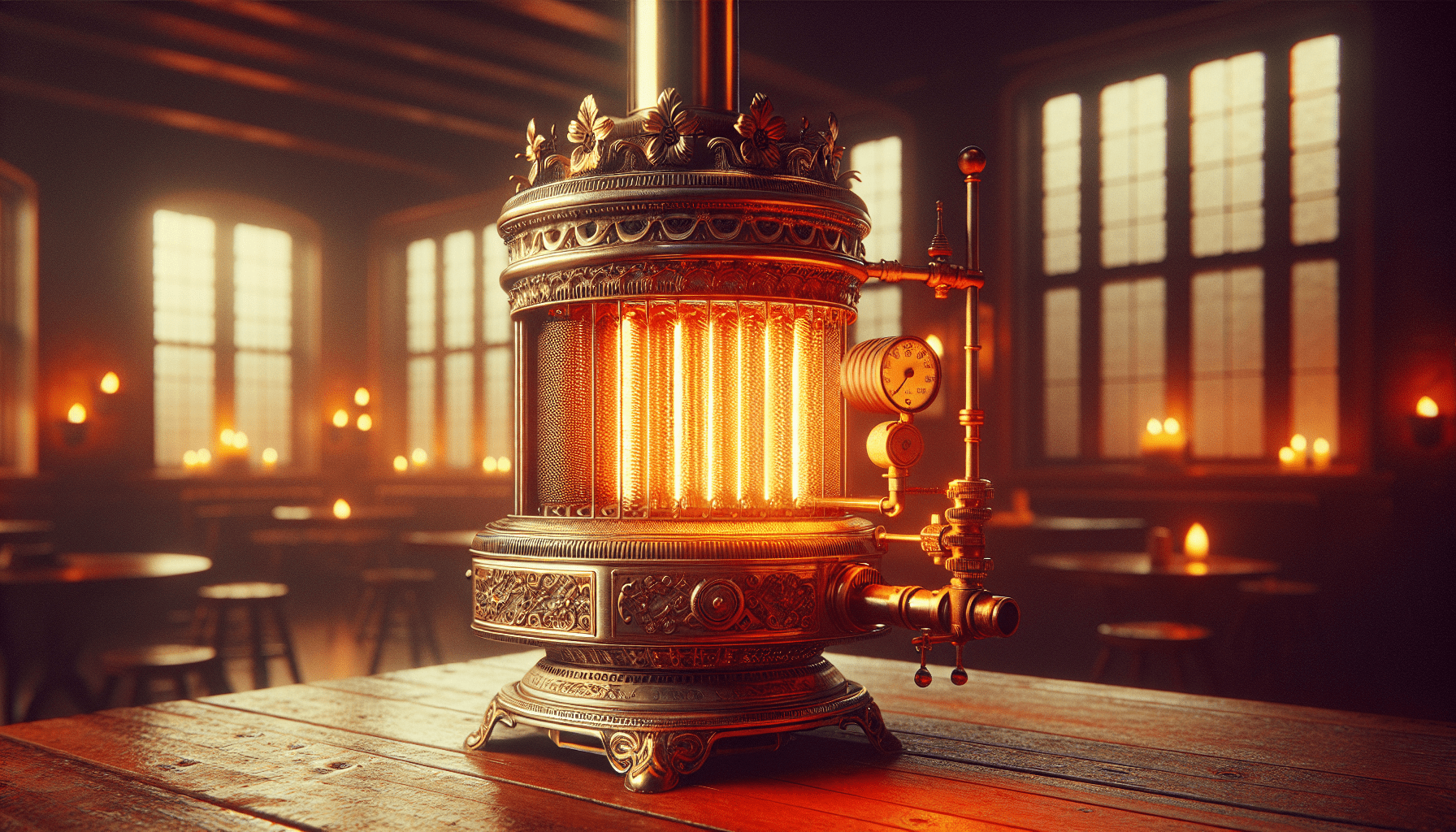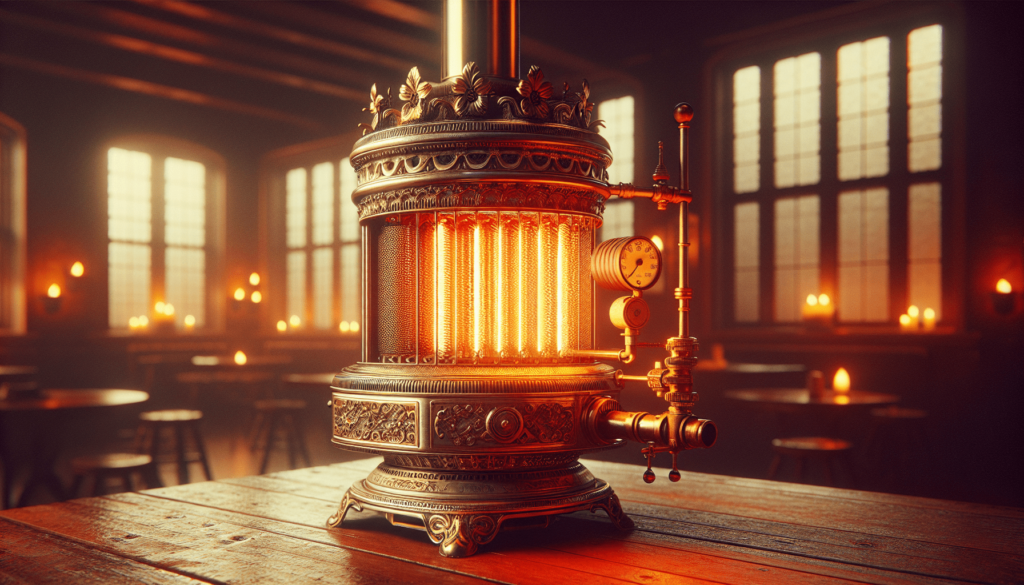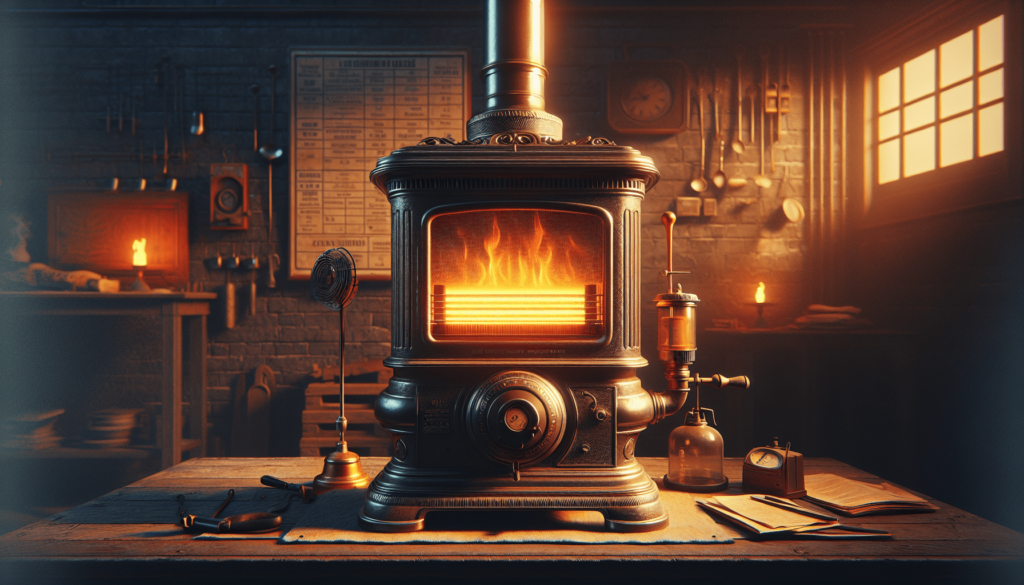
Have you ever wondered how efficient chimney vented oil heaters truly are? These traditional heating systems might seem like relics from a bygone era, but they have stood the test of time for good reason. Let’s take a deep dive to understand their workings, efficiency, and relevance in today’s energy-conscious world.

Understanding Chimney Vented Oil Heaters
Before we evaluate their efficiency, it would be beneficial to understand what chimney vented oil heaters are and how they function. At their core, these heaters burn oil to produce heat, which is then distributed throughout your living space. The exhaust gases from the combustion process are vented through a chimney, hence the name.
How Do They Work?
The process starts when the oil is ignited in the burner, creating a flame that heats the air. This heated air is then pushed through ducts or a similar distribution system to warm your home. The combustion process produces exhaust gases, which are directed out of the home through a chimney, ensuring that harmful byproducts don’t remain indoors.
Components of a Chimney Vented Oil Heater
Breaking it down further, these are the primary components of a chimney vented oil heater:
| Component | Function |
|---|---|
| Burner | Ignites the oil to produce heat |
| Heat Exchanger | Transfers heat to the air |
| Blower | Distributes the heated air |
| Chimney | Vents exhaust gases outside |
| Fuel Tank | Stores the oil |
These components work together to provide efficient heating, but the real question remains—how efficient are they really?
Evaluating Efficiency
Efficiency in heating systems is a measure of how effectively the energy input (in this case, oil) is converted into useful heat output. Let’s talk about the factors that influence the efficiency of chimney vented oil heaters.
Combustion Efficiency vs. Annual Fuel Utilization Efficiency (AFUE)
There are two primary metrics used to evaluate heating systems: Combustion Efficiency and AFUE.
- Combustion Efficiency is a measure of how well the heater converts oil into heat during combustion. It focuses solely on the burning process.
- Annual Fuel Utilization Efficiency (AFUE), on the other hand, is a more comprehensive metric. It accounts for both the combustion efficiency and the energy lost during the startup and shutdown phases, providing a more realistic picture of the heater’s performance over an entire heating season.
| Efficiency Metric | Description |
|---|---|
| Combustion Efficiency | Measures the efficiency of the combustion process |
| AFUE | Accounts for both combustion efficiency and energy losses over a season |
Typical Efficiency Ratings
Chimney vented oil heaters generally have AFUE ratings between 80% and 85%. While they may not match the 95% to 98% AFUE ratings of modern gas furnaces, they do hold their own fairly well and are often much more cost-effective to install.
Factors Affecting Efficiency
Although the standard efficiency ratings give you a rough idea, the actual performance can vary based on many factors.
Installation Quality
One crucial factor is the quality of installation. Even the most efficient heater will underperform if it’s not installed correctly. Ensure that the installation is done by a qualified professional to get the most out of your heater.
Maintenance
Regular maintenance is another important aspect. Simple upkeep tasks like cleaning the burner and inspecting the chimney for blockages can go a long way in maintaining high efficiency.
Home Insulation
The insulation in your home also plays a critical role. If your home is poorly insulated, a significant amount of the heat produced will escape, making your heater work harder than it needs to. Proper insulation can significantly enhance the efficiency of your heating system.

Costs and Benefits
When you contemplate the efficiency of any heating system, it’s essential to look at both the costs and the benefits.
Initial Cost
Chimney vented oil heaters are generally less expensive to install than modern high-efficiency systems, making them an attractive option if you’re on a budget.
Operating Cost
The cost of operating these heaters can vary depending on the price of oil. However, thanks to their reasonable efficiency and the improvements in oil burner technology, the operating costs are often quite manageable.
Longevity
One of the understated benefits of chimney vented oil heaters is their durability. These systems are built to last and often have lifespans of 20 years or more. This long lifespan can offset some of the initial cost savings you might get with newer systems.
Environmental Considerations
While we’re talking about efficiency and costs, ignoring the environmental impact would be remiss. How do chimney vented oil heaters stack up in this regard?
Emissions
Since these heaters burn oil, they do produce emissions. However, modern units are designed to minimize harmful byproducts like carbon monoxide. It’s essential to ensure that your heater is a newer model and is regularly serviced to keep emissions in check.
Oil as a Resource
Oil is a finite resource, and its extraction and use have environmental consequences. That said, the energy density of oil is quite high, meaning that oil heaters can produce a lot of heat relative to the amount of fuel used.
Modern Improvements
Believe it or not, chimney vented oil heaters have evolved even though they are based on older technology. Modern units come with various improvements aimed at boosting efficiency and reducing emissions.
Electronic Ignition
One such improvement is the use of electronic ignition systems, which replace the traditional pilot light. This small change can result in significant fuel savings and improved efficiency.
Flame Retention Burners
Modern units also often come with flame retention burners. These burners are designed to produce a hotter flame, which can improve the heater’s combustion efficiency and thus its overall AFUE.
Comparing With Other Heating Systems
With all this information in hand, you might be wondering how chimney vented oil heaters compare to other heating systems. Let’s break it down.
Gas Furnaces
Gas furnaces are often touted as being more efficient, with AFUE ratings often reaching into the mid-90s. They also burn cleaner, producing fewer emissions than oil heaters. However, gas furnaces can be more expensive to install, and natural gas may not be available in all areas.
Electric Heaters
Electric heaters are nearly 100% efficient in converting electricity to heat, but electricity is often more expensive than oil per unit of energy. Additionally, the environmental impact of generating electricity can be significant, especially if it comes from non-renewable resources.
Heat Pumps
Heat pumps are incredibly efficient, sometimes achieving efficiencies of over 300% because they move heat rather than generate it. However, they can be expensive to install and may not be as effective in extremely cold climates.
| Heating System | Typical AFUE | Installation Cost | Operating Cost | Lifespan | Environmental Impact |
|---|---|---|---|---|---|
| Chimney Vented Oil Heater | 80-85% | Moderate | Variable (depends on oil prices) | 20+ years | Moderate |
| Gas Furnace | 95-98% | High | Generally lower than oil | 15-20 years | Low |
| Electric Heater | ~100% | Low | Higher than oil or gas | 10-15 years | High |
| Heat Pump | 200-300% | High | Low | 15-20 years | Low (if using renewable electricity) |
Making the Right Choice
Choosing a heating system for your home is no small decision. It’s important to consider not just the initial cost and efficiency but also factors like availability of fuel, local climate, and environmental impact. Chimney vented oil heaters can be a great choice, especially if you’re looking for a reliable, long-lasting solution that won’t break the bank.
Factors to Consider
When assessing whether a chimney vented oil heater is the right choice for you, consider the following:
- Availability of Oil: Ensure that oil delivery services are readily available in your area.
- Space for a Chimney: You’ll need a suitable location for venting the exhaust gases.
- Home Size and Layout: Larger homes or those with multiple levels might require more powerful systems or even multiple units.
- Budget: Factor in both initial installation costs and ongoing operating costs.
- Environmental Preferences: Consider how important the environmental impact is to you and whether other systems might better align with your values.
Consulting a Professional
Given the complexities involved, it’s always a good idea to consult with a professional. An experienced HVAC technician can provide valuable insights tailored to your specific situation, helping you make a well-informed decision.
Conclusion
Chimney vented oil heaters, with their blend of affordability, durability, and respectable efficiency, continue to be a popular choice for many homeowners. While they might not boast the high efficiency ratings of modern gas furnaces or heat pumps, they offer reliable performance that has stood the test of time.
By understanding their workings, regularly maintaining the system, and ensuring proper installation, you can maximize the efficiency of your chimney vented oil heater. As you weigh your options, keeping these factors in mind will help you choose the heating system that’s perfect for your home and your lifestyle.
